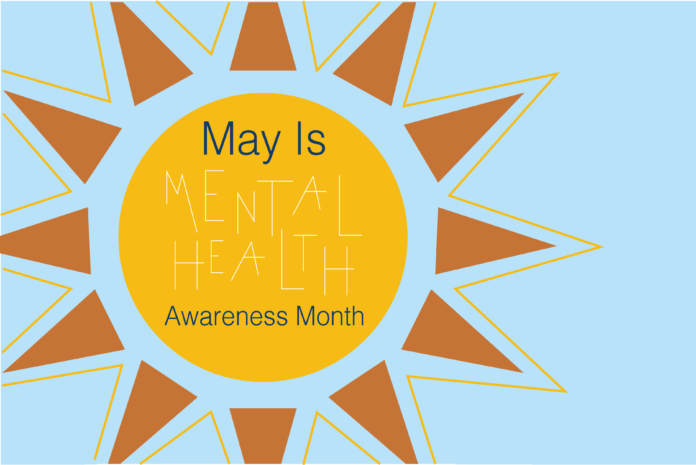MHI officials talk about organization’s mission, implications of hosting events online
Every May, in celebration of Mental Health Awareness Month, the UC Davis Mental Health Initiative (MHI) hosts daily events geared toward destigmatizing and improving understanding of mental health. The student-run campus organization focuses on a different intersection of mental health during every Zoom event, placing high value on inclusivity and encouraging diversity in the demographics who join.
“We want to invite people to learn more about how mental health is not simply just a one-type model where you go to therapy with a white therapist and they assume you’re able-bodied and they assume you have enough money,” said Deborah Widjaja, a fifth-year neurobiology, physiology, and behavior major who co-directs the MHI. “Mental health really is more than just that — it’s community care, it’s culturally relevant, it is justice-seeking, it is caring about your neighbors, caring about yourself.”
During the month, online events can be accessed from the organization’s Facebook page. These events include themes such as sexual assault, masculinity, autism, mass incarceration and basic needs. Widjaja said observing the events, especially when the theme doesn’t apply directly to someone’s identity, can be illuminating, as the events are meant to foster improved understanding of the realities of others, in addition to an understanding of oneself.
“It’s a learning space, so you come in there to learn more, to humble yourself on what it is that you don’t already know — and I think that should be the mindset of everyone,” Widjaja said. “I don’t think people should shy away from knowing or honoring something or someone else because you don’t know how to. You go there because you don’t know how to, and so you go there to learn how to.”
In addition to daily events, the MHI also posts stories to its Instagram, featuring DIY videos and recipes. To kick off the month, they hosted a “Livestream with Llamas,” which had 850 total guests in attendance.
Widjaja said the new online format of the events is a factor that makes attendance much easier, especially for those whose anxiety may have prevented them from joining before.
“Let’s say you just woke up from a nap,” Widjaja said. “You can literally just roll […] to your side and open your laptop or your phone and just jump in on the event. I think that’s a lot of flexibility. I think this is especially useful for folks with a high level of anxiety […] or some level of just not wanting to be around people, because sometimes people just don’t. Maybe you’re introverted, maybe it’s just not your day.”
Inara Chatoor, co-publicity coordinator of the MHI, emphasized the importance of not letting the global pandemic overshadow the importance of Mental Health Awareness Month.
“[A] great thing about carrying on with our events without focusing too much on the pandemic is that it […] gives a little sense of normalcy, where just because there’s a pandemic doesn’t mean the other intersections of mental health automatically do not matter anymore,” Chatoor said. “We still wanted to continue on with our month, because we wanted to acknowledge that for the people in those communities, for the people struggling with those intersections, they still have a platform; their feelings are still valid.”
With the new online operation, the MHI’s events are open to UC Davis students as well as anyone with access to the Zoom links. Chatoor recounted that one event’s turnout included a variety of geographic representation.
“It was people tuning in from [places] like Canada, Seattle,” Chatoor said. “That’s the small positive side of having these virtual events is that we can reach out to people, whoever it may benefit, and it’s not limited to people who can show up at Wellman Hall at 7 p.m.”
The MHI strives to create the right online environment to discuss mental health: one where anonymity is also an option among speaking out.
“Nobody is asking you to give your name and major, or three facts, any of that kind of stuff,” Chatoor said. “It’s all for folks to learn. It’s all for folks to be in a comfortable space, talking about an intersection which they are passionate about, or which they want to learn more about and have a discussion on. We’re just trying to show everybody that it’s okay to pause and think about your mental health. It’s okay to start the dialogue, it’s okay to start advocating about it, and just to take a breath.”
Written by: Lyra Farrell — features@theaggie.org





